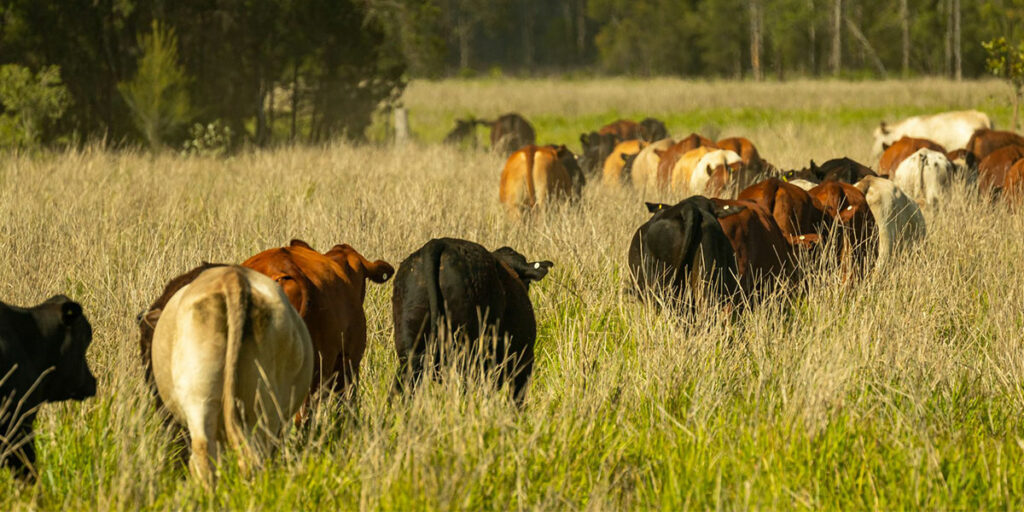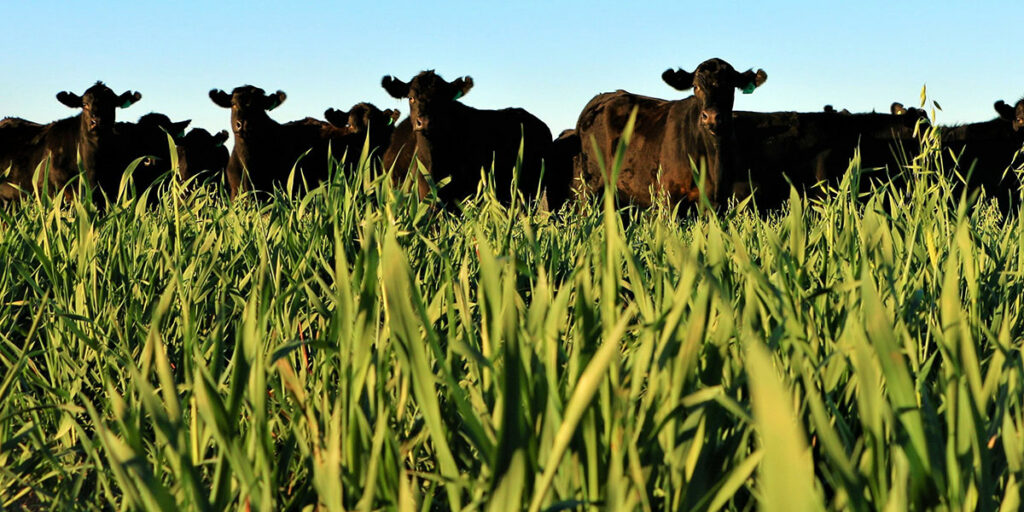The benefits of soil carbon farming.
If you’re a producer in Australia, chances are you’ve heard of soil carbon farming. But what is it? And more importantly, what are the benefits?
Soil carbon farming is gaining traction as an effective way to improve soil health, reduce risk for businesses, and mitigate climate change. Through practices such as cover crops, no-till systems, time- controlled grazing and composting, the process of increasing organic matter in soils generates a range of benefits including improved water quality; increased resilience during pests or drought conditions; and sequestration of atmospheric carbon dioxide into land. As organisations search for viable solutions that will move us towards sustainability goals – all while protecting food security–soil carbon farming presents a promising pathway forward with co-benefits along the way.
Soil carbon farming benefits for the environment.
Soil carbon farming provides a vital environmental service: the ability to pull CO2 out of our atmosphere and make use of it in beneficial ways. By sequestering atmospheric CO2, we can not only reduce global greenhouse gas levels, but also support soil health with increased water-holding capacity and greater drought resistance.
Soil carbon farming benefits for producers.
Implementing soil carbon farming has several benefits for producers, which range from increasing soil fertility, to improving soil quality and minimising soil erosion. Additionally, soil carbon farming offers producers the potential of earning Australian Carbon Credit Units (ACCUs), diversifying income sources, and reducing business risk.
However, modern soil carbon farming is not without its challenges; accurate measurement of soil carbon levels is key in order to realise the true benefits from regenerative agriculture practices.
Fortunately, producers can now access affordable scanning technology to measure soil health quickly and accurately using NetScan™ technology. With the help of this precision soil science, producers are able to optimize their soil carbon farming practices which can ultimately lead to greater yields through better soil health and renewing natural resources.
What is an ACCU and who is the ERF?
The Emissions Reduction Fund (ERF) is a soil carbon farming initiative that was established in 2014 by the Australian Government. The aim of the fund is to encourage farmers to adopt practices that will increase soil organic matter and help to sequester carbon dioxide. Soil carbon farming can involve a range of activities, such as reducing tillage, planting cover crops, and using organic manure. These practices can help to improve soil health, increase crop yields, and reduce greenhouse gas emissions. In addition, the Emissions Reduction Fund provides financial incentives for farmers who adopt soil carbon farming practices. As a result, the fund is playing an important role in promoting sustainable agricultural practices in Australia.
Australian Carbon Credit Units (ACCUs) are a unit of tradeable currency in Australia’s Emissions Reduction Fund. One ACCU represents one tonne of carbon dioxide equivalent that has been abated through soil carbon farming. Soil carbon farming is a type of agriculture that improves the soil’s ability to store carbon. This helps to offset emissions from other sources, such as power plants and factories. ACCUs can be bought and sold on the open market, and they can be used to offset emissions from other activities. For example, a company that emits 100 tonnes of carbon dioxide equivalent could purchase 100 ACCUs to offset its emissions. Alternatively, the company could reduce its emissions by implementing soil carbon farming practices on its own property. In this way, soil carbon farming can help to reduce emissions and encourage investment in climate-friendly practices.
In Summary
- Soil carbon farming is a process of increasing organic matter in soils that generates a range of benefits, including improved water quality; increased resilience during pests or drought conditions; and sequestration of atmospheric carbon dioxide into land.
- Organisations are searching for viable solutions that will move us towards sustainability goals – all while protecting food security–soil carbon farming presents a promising pathway forward with co-benefits along the way.
- Implementing soil carbon farming has several benefits for producers, which range from increasing soil fertility, to improving soil quality and minimising soil erosion. Additionally, soil carbon farming offers producers the potential of earning Australian Carbon Credit Units (ACCUs), diversifying income sources, and reducing business risk.
For a free consult on the potential of your property to generate ACCUs through soil carbon farming contact us.



